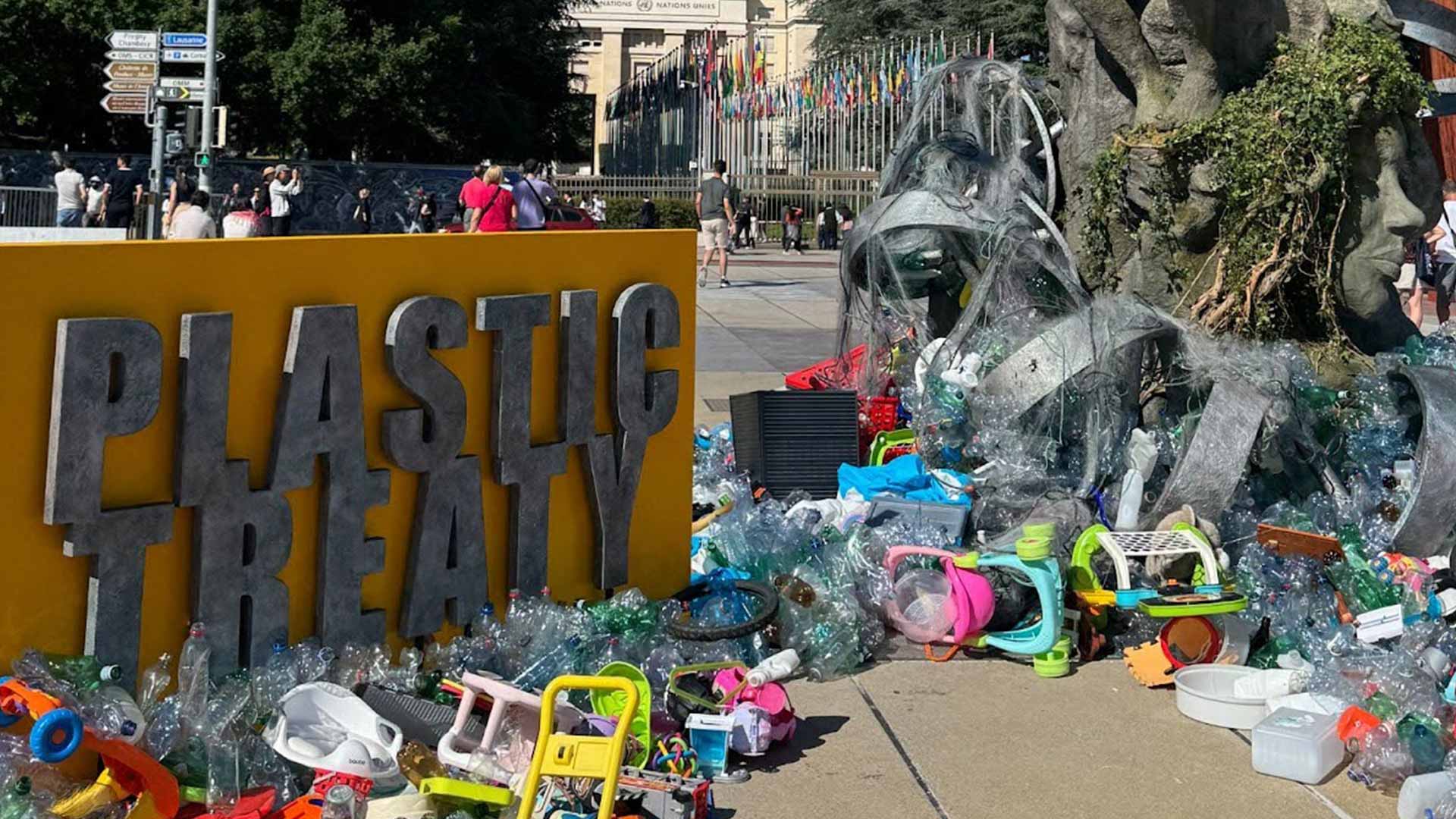
The Global Plastics Treaty in Geneva: No Sleep, No Treaty
The UN Plastics Treaty is intended to become the first legally binding global agreement to end plastic pollution. Negotiations have taken place through Intergovernmental Negotiating Committee (INC) meetings where 184 countries debate potential treaty text line by line. The Geneva meeting in August (INC-5.2) was meant to be the sixth and final round of talks.
A Fragile Moment for the Plastics Treaty
The UN Plastics Treaty is set to be the world’s first binding agreement to end plastic pollution. This August in Geneva, 184 countries convened for what was expected to be the final negotiation round. Instead, delegates left exhausted and without a deal, as divisions over ambition proved impossible to bridge.
In the final days of negotiations, talks stretched past midnight, with sessions postponed hour by hour. The divide between those demanding an ambitious treaty with global targets that adopts a full lifecycle approach and those seeking weak, voluntary measures focused on waste management was impossible to bridge. In the final hours, a last draft was circulated that included “a comprehensive approach that addresses the full life cycle of plastics”. Encouraging, but as many countries argued, far from enough. Another “final” session (INC-5.3) now seems inevitable, with intersessional work continuing in the months ahead.
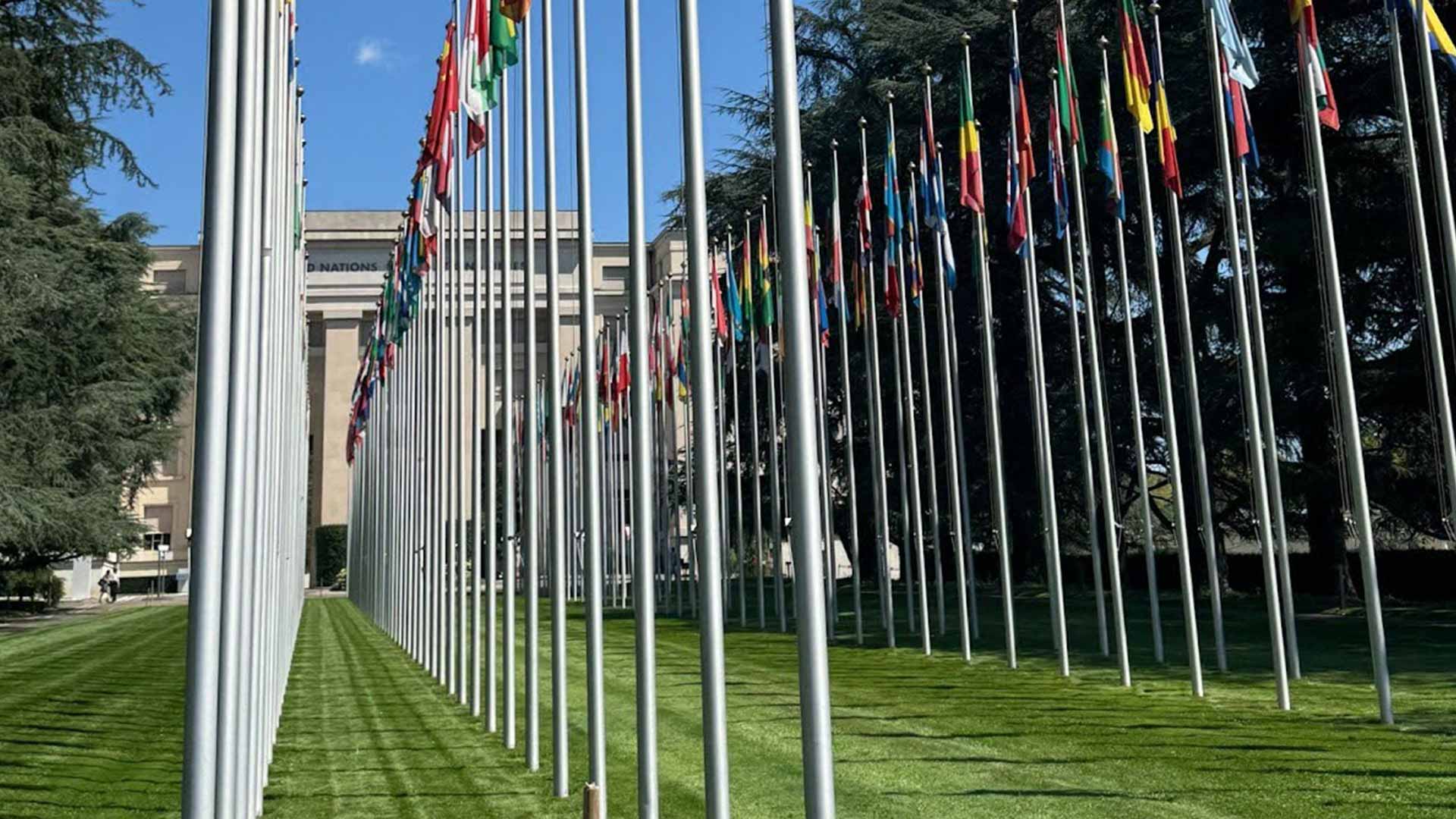
The Palais des Nations in Geneva, Switzerland.
Meanwhile, plastic keeps flowing into the ocean at roughly 20 tons a minute. Delay is a cost that communities and ecosystems pay in real time.
Plastic Odyssey’s Perspective: From the Frontlines
Our vessel and crew are currently in Tanzania, working with coastal communities overwhelmed by plastic waste. After almost 3 years working around the globe with local solution holders, we are starting a new chapter of our journey focused on restoring threatened and inaccessible UNESCO World Heritage sites like Henderson Island last year. In October, we will embark to another UNESCO site, Aldabra Atoll in Seychelles, where an estimated 500 tons of plastic waste has accumulated. This year, we will conduct a comprehensive site assessment, with large-scale cleanup missions planned from 2026 on.
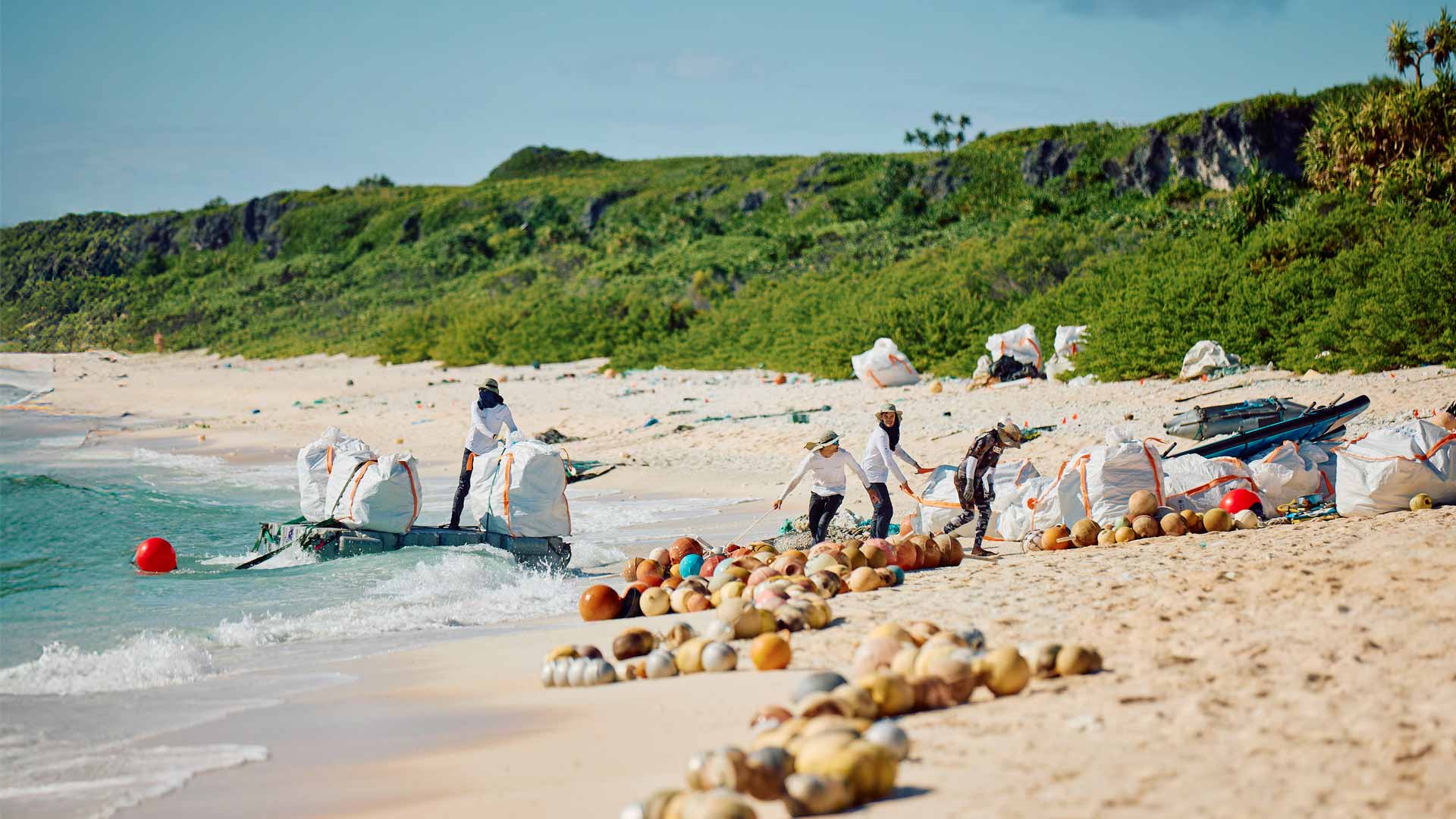
Cleanup of Henderson Island (South Pacific) by the Plastic Odyssey team, February 2024.
We are not observers from afar. We have navigated waterways choked with debris, threatening both ecosystems and livelihoods. We have cleaned beaches that refilled with waste in a few weeks. We have partnered with entrepreneurs reshaping end-of-life plastic, yet they are unable to keep up with the flood of waste. While traveling the world, we also found successful alternative solutions to plastic ready to be scaled and shared.
As Simon Bernard explains:
“Every stopover shows us the same pattern: communities and entrepreneurs are doing incredible work to reduce plastic. People are aware of the problem and ready to change their behaviors. They want sustainable alternatives and they don’t want a polluted environment, but they are fighting a tide of plastic that never stops. Without international targets to reduce production and improve management, local solutions will always be overwhelmed.”
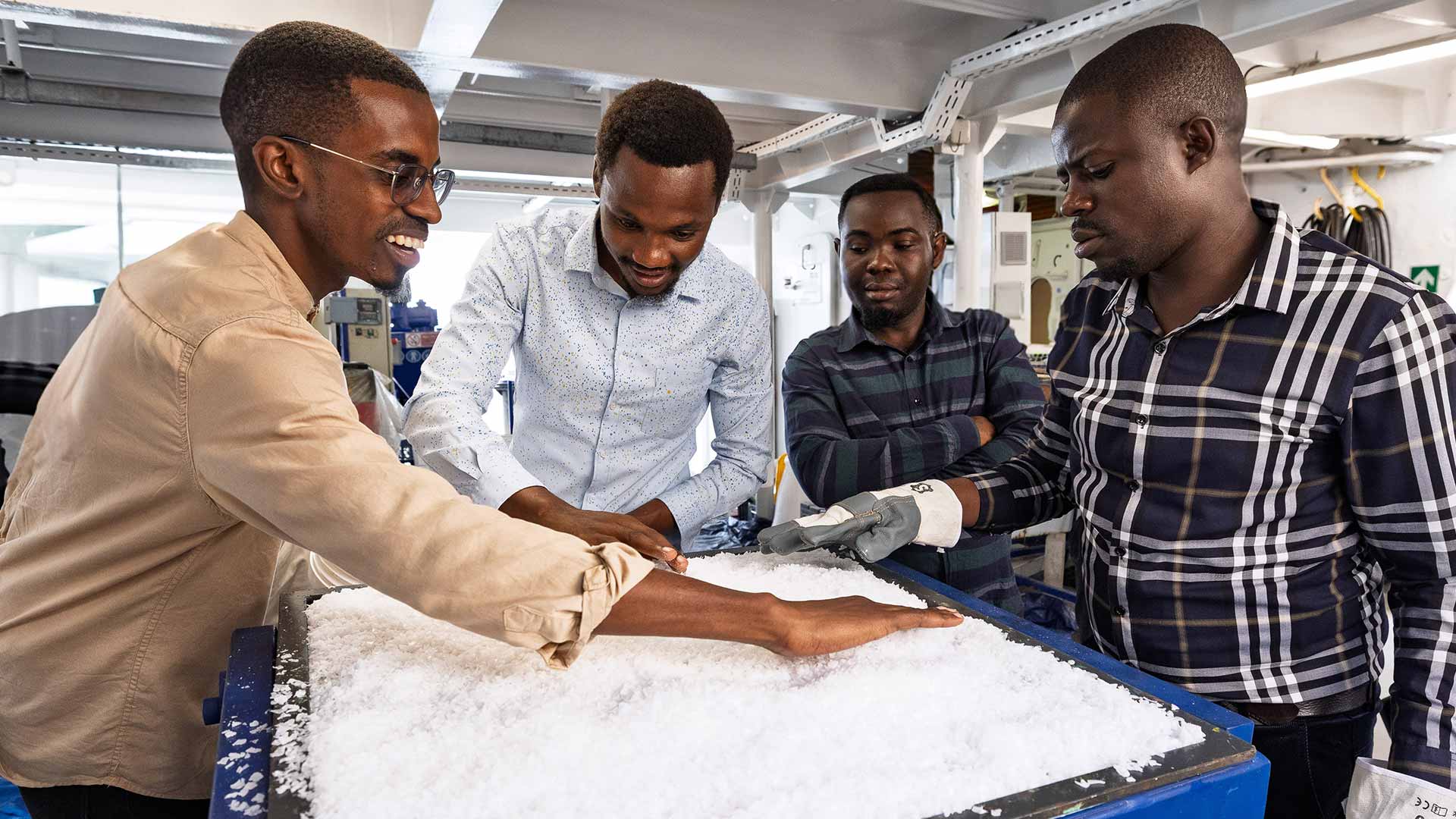
Training recycling entrepreneurs in Dar es Salaam, Tanzania.
These realities explain why we believe a treaty must cover the full life cycle of plastics, which is also why we developed a holistic approach to tackling plastic pollution; from studying the problem to inform decision-making, to restoring pollution hotspots and inspiring change by sharing concrete solutions and impactful stories.
Based on our extensive work around the world, we know that for international commitments to be effective, they must include a systemic approach, including:
- Reduction of plastic at its source is the most critical. We support individuals to shift habits through education, but recognize lasting change requires regulations that cut production and drive alternatives, or every other solution will remain overwhelmed.
- Remake recognizes that recycling is necessary for waste already in circulation; our low-tech, local units create jobs and reduce leakage, providing solutions in areas lacking comprehensive waste management.
- Restore means cleaning up what’s already out there, especially in ecologically sensitive areas where plastic threatens biodiversity. From coral reefs to remote atolls, targeted remediation and stewardship are essential to protect ecosystems currently affected by plastic.
- Research is the engine that helps scale safe alternatives, improve remediation, and deepen understanding of how plastics affect communities, the ocean and the environment.
We advocate for a binding, comprehensive treaty that addresses these four dimensions because we have seen the impact of delay and the potential of integrated solutions.
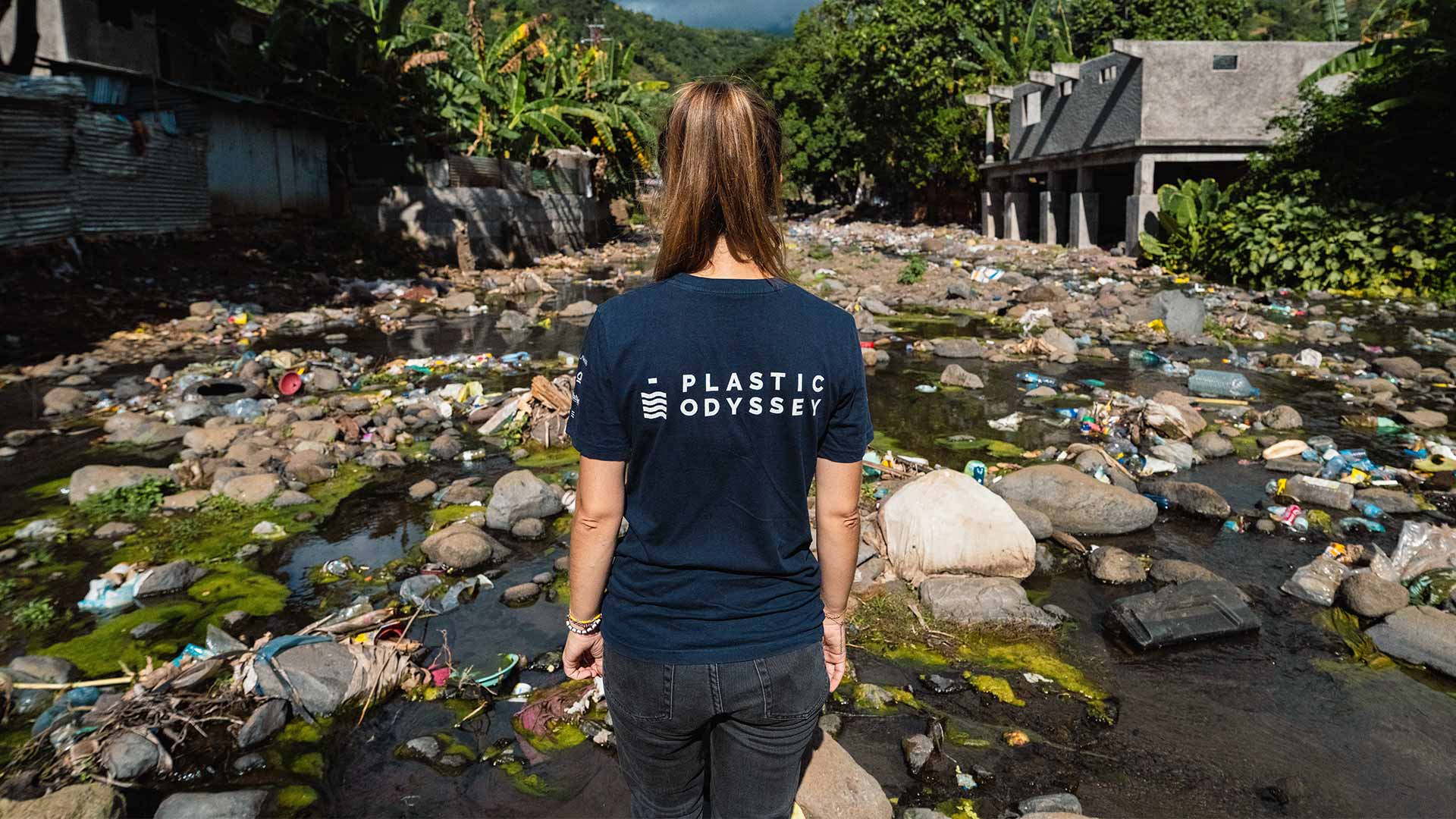
Plastic pollution of a river on the island of Anjouan, Comoros.
What The Plastics Treaty Must Include
The treaty must do the work governments are uniquely positioned to do. It should set binding, measurable rules that enable reduction at scale and support the people already building solutions.
- Production controls and targets: Commit to reducing virgin plastic production and phasing out the most harmful single-use items. Anything less extends the crisis.
- Incentives for reuse and safe substitutes: Create incentives for reuse and refill systems, support promising alternatives and give them the political backing they need to compete fairly with cheap virgin plastic.
- Financing and responsibility: Establish effective financing so affected countries and communities can build waste systems that prevent leakage rather than chase it.
- Support for frontline communities: Direct resources to the places hit hardest and to local entrepreneurs who are already cutting pollution.
- Monitoring and transparency: Improve data, traceability, and disclosure across the plastic value chain to guide action and accountability.
Without these elements, the treaty will fall short. With them, it can unlock the scale and speed the crisis demands.
Diving Deeper into The Plastics Treaty
The UN Plastics Treaty is intended to become the first legally binding global agreement to end plastic pollution. Since 2022, negotiations have taken place through Intergovernmental Negotiating Committee (INC) meetings. INCs are a UN process where 184 countries debate potential treaty text line by line. Adoption requires consensus, meaning every country must agree, which makes progress slow and fragile.
The Geneva meeting in August (INC-5.2) was meant to be the sixth and final round of talks. Instead, deep divides over ambition, scope, and financing led to stalemate. After long days and even longer nights, countries left without agreement on a treaty text. A new session, INC-5.3, is now expected before the end of the year.
Dr. Hanna Dijkstra was on the ground and reported:
“I arrived hopeful that Geneva would deliver a finalized treaty. Instead, talks collapsed as a few countries pushed for weak, voluntary and downstream measures. Though negotiations have stalled, I know that organizations on the ground are continuing their work to end plastic pollution every day.”
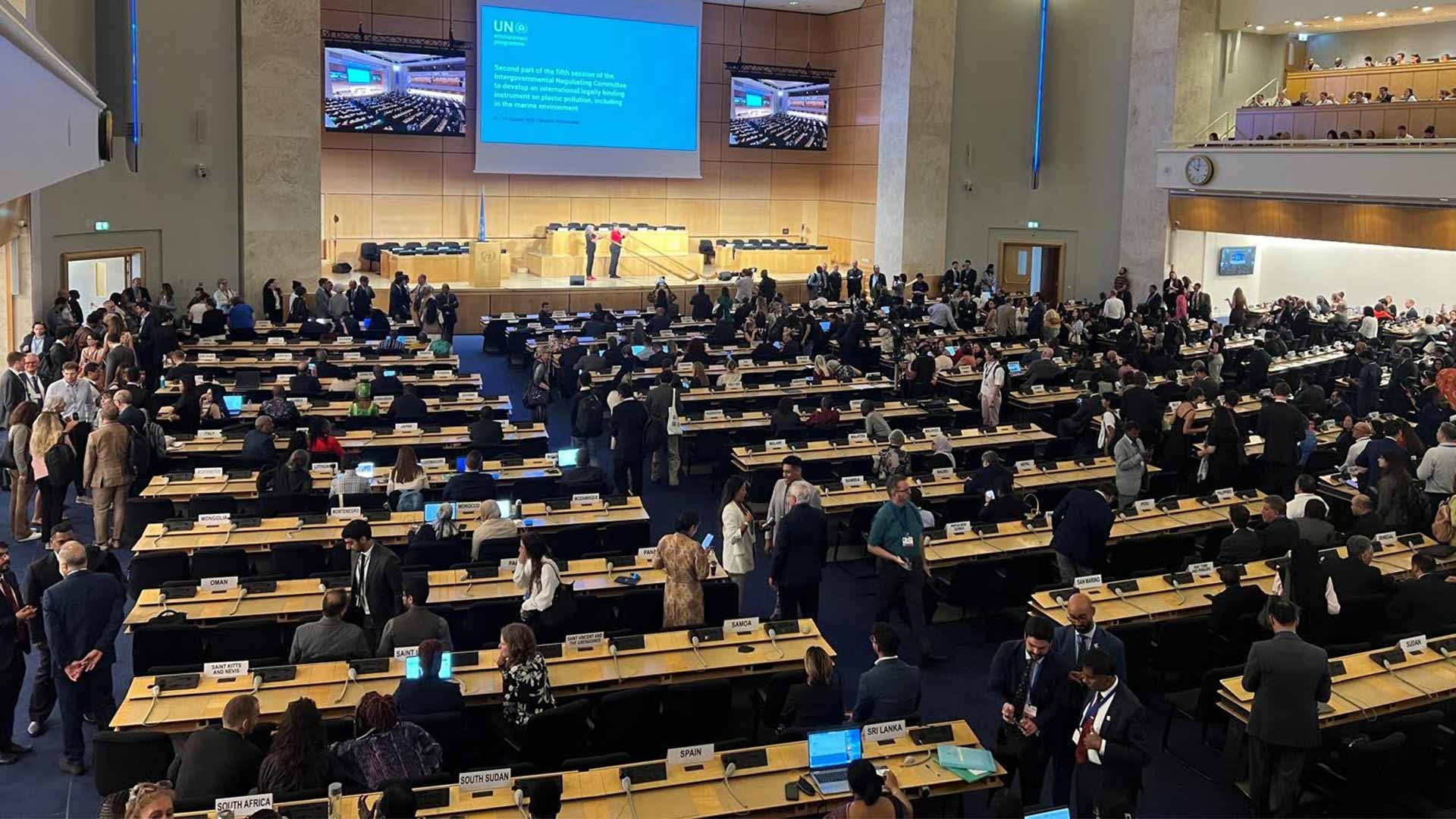
Negotiations for a global treaty on plastic pollution in Geneva, August 2025.
Charting the Course Ahead
Yes, Geneva ended without a deal. But over a hundred countries remain committed to the full life cycle approach. As UNEP Executive Director Inger Andersen reminded us: “Getting a treaty done in 2–3 years has never been done before.” Persistence, not despair, is our path forward.
While negotiators prepare for the next session, Plastic Odyssey, along with local NGOs and international partners, will keep doing what treaties cannot do quickly enough. We continue to act: raising awareness and showcasing sustainable alternatives to plastic, deploying local recycling units, sharing open source knowledge on waste transformation, restoring polluted ecosystems, and increasing important research. We will also keep sharing field evidence with decision-makers so policy follows reality, not the other way around. We are building change on the ground while pushing for systemic policy shifts.
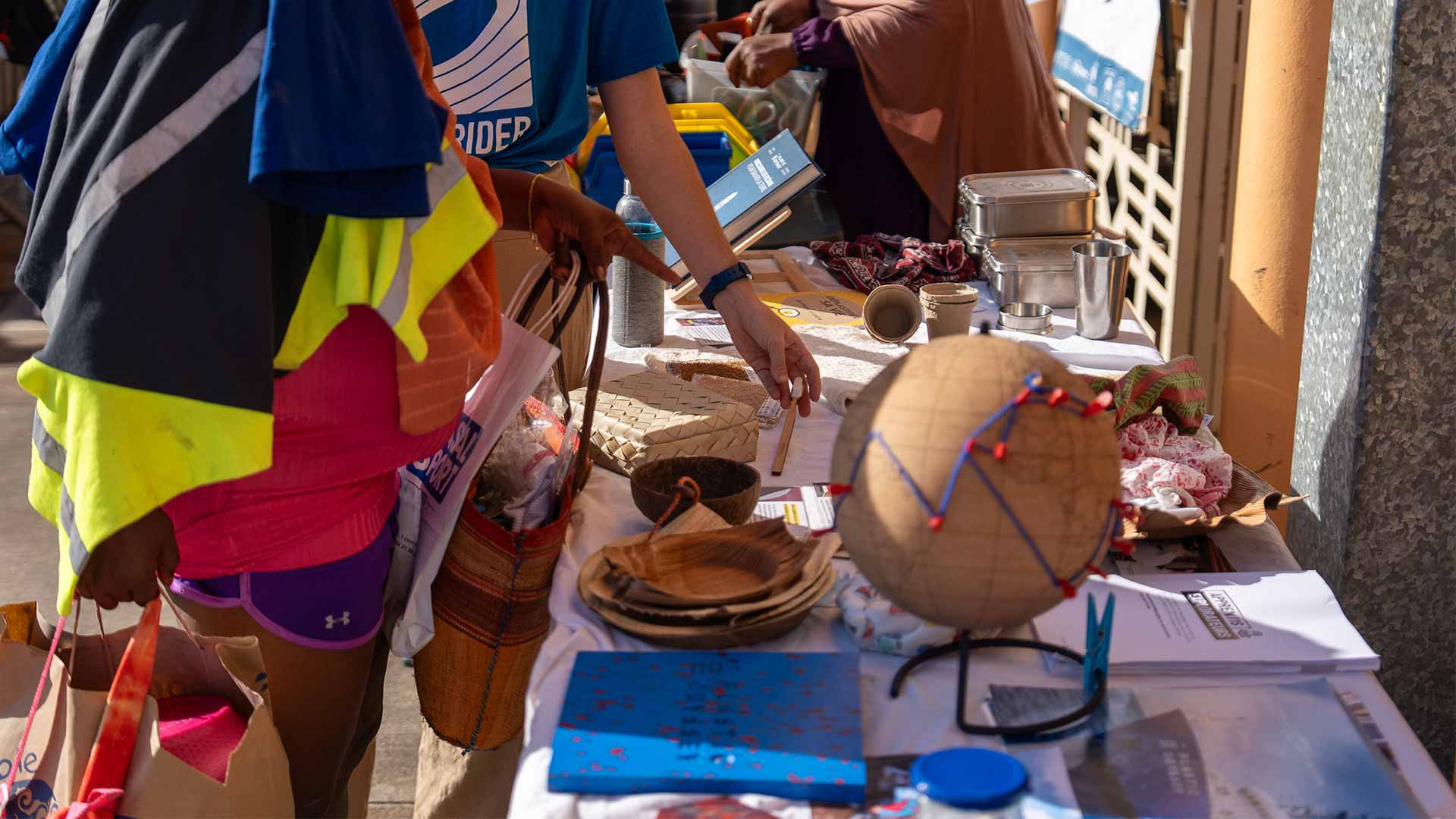
Presentation of alternatives to plastic at a village of associations in Mayotte.
A Call to Action
Ending plastic pollution is not a choice between reduction or recycling, education or cleanup. It is all of the above, working together. Plastic Odyssey will continue to research, restore and inspire change around the world. Through our work we have seen solutions that reduce our dependency on plastic, and many people are willing to change their behavior and seek alternatives. What is missing is strong international laws and targets that can set standards and create momentum for scale and system change.
We need a binding treaty that cuts production, funds solutions, and protects communities and nature.
Everyone has a role to play in solving the plastic crisis, from global treaties to local cleanups. The ocean, and the people who depend on it, cannot wait.
Support our mission
To learn more about the INC negotiation process
- The Scientists’ Coalition for an Effective Plastics Treaty develops briefs and research to support treaty negotiations
- The UN Environment Program publishes official documents, schedules and text drafts
- Center for International Environmental Law publishes legal analyses and documents the treaty process
